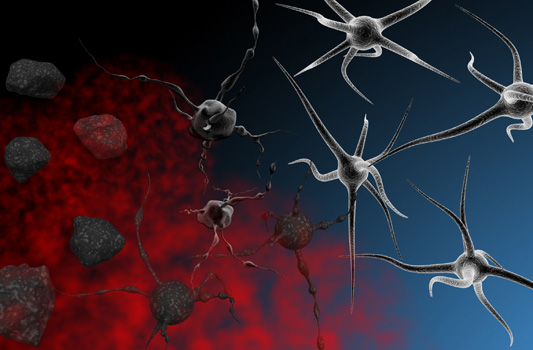
The Future Of Anti-Aging Therapies
Dr. Thomas Rando, principle investigator for the Rando Laboratory at Stanford University’s School of Medicine is paving the path to the fountain of youth. Research emerging from his lab changed the cutting-edge focus of anti-aging strategies from how to reverse aging to how to reset the aging clock. Dr. Rando’s team demonstrates that by changing the environment of aging cells that scientists can push a “reset button” effectively restoring the characteristics of youth. As a result, organs and tissues comprised of these cells become “young” again even though they are chronologically “elderly.”
A Happy Epigenome Acts Young And Healthy
Dr. Rando explains in the January 2012 issue of Cell that the reset button is pushed by manipulating epigenetic factors affecting the aging cellular environment. Every cell in the human body contains 100% of the genetic material necessary to build an entire person. Regulation of which genes get expressed (turned on) is governed by cellular material known as the epigenome. The epigenome is affected by environmental factors including diet and stress. Positive environmental factors ensure a nurturing epigenome whereas negative factors imprint the epigenome destructively. Hallmarks of an “unhappy” epigenome include aging and disease.
The Miracle of Conception
By manipulating the epigenome, scientists are able to reset the aging clock on cells in a process duplicating the conditions of human conception. When the genetic material of a man and woman meet during fertilization, the resulting genetic material (zygote) is reset to ground zero even though the contributing material (mom and dad) is decades old. In a process scientists don’t yet understand, the union of the male and female genetic material starts aging all over again.
In laboratory experiments, scientists reset the aging clock on muscle, skin and bone cells of aged mice. The result is that elderly mice sport the skin, muscle and bone tissue of the equivalent of teenage mice. What are the practical implications?
Your Environment Is Your Key To Reset Your Aging Clock
Although therapies for humans remain on the drawing board, the findings highlight the importance of reducing stress. Researchers proved stress experienced by pregnant women can impact epigenetic factors both in children and grandchildren resulting in disease and shortened life-span. Other studies show that a mother’s emotional state during pregnancy turns on genes that code for depression in their children. Does anyone need reminding that stress is a leading cause of heart attack? Diligent attention paid to creating harmonious work and home environments may take years off your appearance as well as ensure you live longer.
